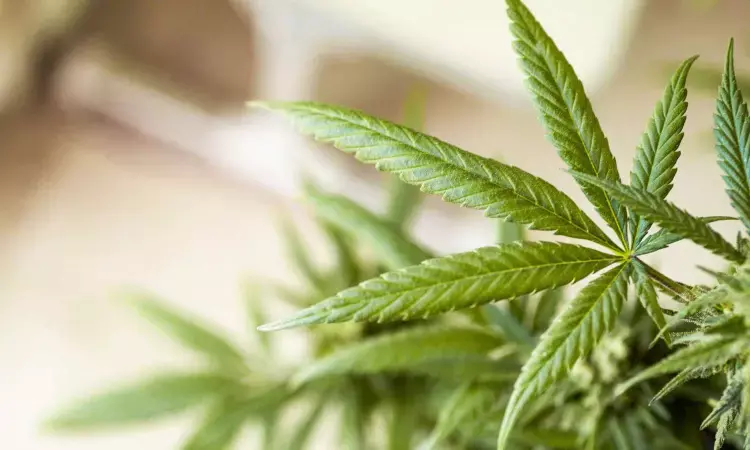- Home
- Medical news & Guidelines
- Anesthesiology
- Cardiology and CTVS
- Critical Care
- Dentistry
- Dermatology
- Diabetes and Endocrinology
- ENT
- Gastroenterology
- Medicine
- Nephrology
- Neurology
- Obstretics-Gynaecology
- Oncology
- Ophthalmology
- Orthopaedics
- Pediatrics-Neonatology
- Psychiatry
- Pulmonology
- Radiology
- Surgery
- Urology
- Laboratory Medicine
- Diet
- Nursing
- Paramedical
- Physiotherapy
- Health news
- Fact Check
- Bone Health Fact Check
- Brain Health Fact Check
- Cancer Related Fact Check
- Child Care Fact Check
- Dental and oral health fact check
- Diabetes and metabolic health fact check
- Diet and Nutrition Fact Check
- Eye and ENT Care Fact Check
- Fitness fact check
- Gut health fact check
- Heart health fact check
- Kidney health fact check
- Medical education fact check
- Men's health fact check
- Respiratory fact check
- Skin and hair care fact check
- Vaccine and Immunization fact check
- Women's health fact check
- AYUSH
- State News
- Andaman and Nicobar Islands
- Andhra Pradesh
- Arunachal Pradesh
- Assam
- Bihar
- Chandigarh
- Chattisgarh
- Dadra and Nagar Haveli
- Daman and Diu
- Delhi
- Goa
- Gujarat
- Haryana
- Himachal Pradesh
- Jammu & Kashmir
- Jharkhand
- Karnataka
- Kerala
- Ladakh
- Lakshadweep
- Madhya Pradesh
- Maharashtra
- Manipur
- Meghalaya
- Mizoram
- Nagaland
- Odisha
- Puducherry
- Punjab
- Rajasthan
- Sikkim
- Tamil Nadu
- Telangana
- Tripura
- Uttar Pradesh
- Uttrakhand
- West Bengal
- Medical Education
- Industry
Preoperative screening for Cannabis Use to be mandatory: US guidelines-recommend

According to new guidelines released today by the American Society of Regional Anesthesia and Pain Medicine, patients who have to undergo procedures requiring anesthesia should be asked about cannabis use.
The guidelines were developed in response to the increased use of cannabis during the past 20 years and concerns that it potentially can interact with anesthesia and lead to complications. About 10% of Americans use cannabis monthly, and it is the most commonly used psychotropic substance after alcohol, according to the U.S. Substance Abuse and Mental Health Services Administration.1,2
“Before surgery, anesthesiologists should ask patients if they use cannabis-whether medicinally or recreationally-and be prepared to possibly change the anesthesia plan or delay the procedure in certain situations,” said Samer Narouze, MD, PhD, senior author and ASRA Pain Medicine president. “They also need to counsel patients about the possible risks and effects of cannabis. For example, even though some people use cannabis therapeutically to help relieve pain, studies have shown regular users may have more pain and nausea after surgery, not less, and may need more medications, including opioids, to manage the discomfort. We hope the guidelines will serve as roadmap to help better care for patients who use cannabis and need surgery.”
The guidelines recommend anesthesiologists screen all patients for cannabis use, including asking about the type of cannabis product used, how it was used (eg, smoked, ingested), amount used, how recently it was used and frequency of use.
The guidelines are based on an extensive literature review and experiences from the organization’s “Perioperative Use of Cannabis and Cannabinoids Guidelines Committee,” composed of 13 experts, including anesthesiologists, chronic pain physicians and a patient advocate. The committee addressed nine questions and made 21 recommendations using a modified Delphi consensus method with >75% agreement required for recommendation. Recommendation grades were based on the United States Preventive Services Task Force (USPSTF) process that assigns a letter (an A, B, C, or D grade or an I for insufficient) based on the strength of the evidence and the balance of benefits and harms. All 21 recommendations achieved full consensus.
This is the first U.S.-based guideline on perioperative (before, during and after surgery) management of cannabis, according to lead researcher Shalini Shah, MD, vice chair of anesthesiology at the University of California at Irvine School of Medicine. The guidelines cover preoperative, intraoperative and immediate postoperative care considerations. The American Society of Anesthesiologists reviewed the guidelines and is in agreement with their recommendations and affirms their value for anesthesiologists and surgeons. They are not intended to replace clinical judgement but rather promote improved patient communication and possibly improved outcomes.
Recommendations receiving an A grade support (the highest level of evidence) include: 1) screening all patients before surgery, 2) postponing elective surgery in patients who have altered mental status or impaired decision-making capacity at the time of surgery, 3) counseling frequent, heavy users on the potentially negative effects of cannabis use on postoperative pain control and 4) counseling pregnant patients on the risks of cannabis use to the unborn child.
Reference:
Shah S, Schwenk ES, Sondekoppam RV, et alASRA pain medicine consensus guidelines on the management of the perioperative patient on cannabis and cannabinoidsRegional Anesthesia & Pain Medicine Published Online First: 03 January 2023. doi: 10.1136/rapm-2022-104013
Dr Kamal Kant Kohli-MBBS, DTCD- a chest specialist with more than 30 years of practice and a flair for writing clinical articles, Dr Kamal Kant Kohli joined Medical Dialogues as a Chief Editor of Medical News. Besides writing articles, as an editor, he proofreads and verifies all the medical content published on Medical Dialogues including those coming from journals, studies,medical conferences,guidelines etc. Email: drkohli@medicaldialogues.in. Contact no. 011-43720751


